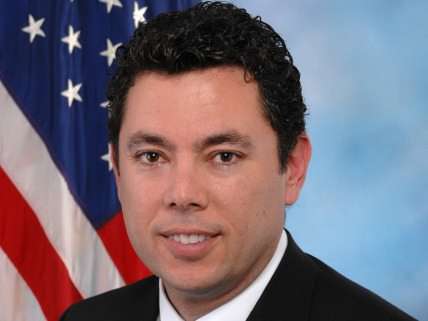Unchanged Rider Language Suggests Anti-Pot Congressmen Are Resigned to Legalization in D.C.
Proposed restriction aims to block commercialization but leaves possession, sharing, and home cultivation untouched.

Tomorrow the House Appropriations Committee is scheduled to consider a bill that would renew a rider aimed at preventing marijuana legalization in Washington, D.C. Notably, the proposed language for next fiscal year is the same as the language for the current fiscal year:
None of the funds contained in this Act may be used to enact any law, rule, or regulation to legalize or otherwise reduce penalties associated with the possession, use, or distribution of any schedule I substance under the Controlled Substances Act.
Because the rider refers to enactment rather than implementation or enforcement, it leaves in place Initiative 71, the voter-approved measure that eliminated local penalties for possession, sharing, and home cultivation. It would bar the District of Columbia Council from using fiscal year 2016 funds to regulate and tax marijuana businesses, since that would require new legislation. But the council still might seek to legalize commercial production and distribution by relying on money allocated prior to the current fiscal year.
It is pretty striking that, despite the heated argument between anti-pot congressmen and D.C. officials about the rider's impact on Initiative 71, the relevant language is unchanged. Less than four months ago, Rep. Jason Chaffetz (R-Utah), who chairs the committee that oversees D.C., was threatening supporters of Initiative 71 with prison if they insisted on respecting the will of voters. Now, rather than clarify Congress's purported intent by adding "or carry out" after "enact," Chaffetz and his allies apparently are content to extend the same restriction that did not do what they said they wanted. Having resigned themselves to decriminalization in D.C. after vehemently objecting to it, they now seem prepared to accept legalization while drawing the line at commercialization—for now.
"At a time when marijuana legalization polls much better with voters than Congress does," says Marijuana Majority's Tom Angell, "it's baffling that House leadership would want to continue standing in the way of these popular, locally enacted reforms. If there's a floor vote on an amendment to strip this language from the bill, I think we have a really good shot of assembling a bipartisan majority of lawmakers who will stand up for letting D.C. enact its own marijuana policies without interference. While congressional leadership still seems to be stuck in a 1980s mindset on marijuana, a series of floor votes on the issue from just last week shows that the rank-and-file membership of the House knows which way the political winds are blowing. Standing in the way of marijuana reform just isn't good politics these days."


Show Comments (17)